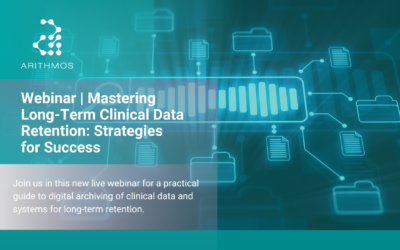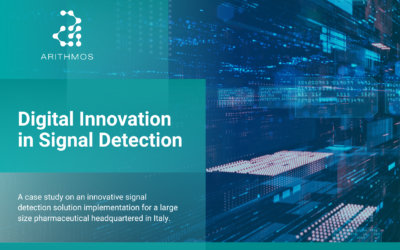In 2020, the role of pharmacovigilance professionals became more important than ever. The Life Sciences industry is working tirelessly towards finding vaccines and treatments against COVID-19, and the efforts of pharmacovigilance teams across the world are vital for monitoring their safety.
In challenging times like this, we as pharmacovigilance experts demonstrate how our expertise, knowledge, and experience can contribute to the protection of patients worldwide. However, how did these challenges impact pharmacovigilance in 2020, and what awaits us in 2021 and beyond? We spoke to Stefania De Santis, a pharmacovigilance professional with more than 30 years of experience and Director of Pharmacovigilance of seQure, to find out.
What is the role of pharmacovigilance in a pandemic of this magnitude?
Pharmacovigilance teams across the whole world have a paramount task – collecting and analysing data, both from clinical trials and from the post-marketing settings, in order to monitor the safety of vaccines and drugs used against COVID-19. We are there to make sure that risks caused by the drug once it goes into the “real world” are identified, properly managed, and communicated to all involved stakeholders.
We are talking not only about new treatments. Drug repurposing gains a lot of attention too. If before it was mostly occasional, in 2020 many companies launched targeted research to explore new potential uses of their drugs. Pharmacovigilance plays a big role in this research and European Medicines Agency has also drawn additional attention to it. In June 2020, EMA added nine additional active substances (chloroquine, darunavir, emtricitabine-tenofovir, filgrastim, ivermectin, nitric oxide, oseltamivir, prednisone, and ritonavir) which are being investigated as potential treatments for COVID-19, to the list of active ingredients used for MLM literature screening.
In which areas can pharmacovigilance professionals make the biggest impact now?
I would say vaccines. In November 2020 European Medicines Agency and national competent authorities have rolled out the Pharmacovigilance Plan of the EU Regulatory Network for COVID-19 Vaccines. The plan laid out the rules for ongoing collection and review of the new information emerging after the authorisation and uptake of COVID-19 vaccines. The role of pharmacovigilance professionals in this is paramount, as the plan touches on all pharmacovigilance aspects, from case processing to risk management and signal detection.
How did COVID-19 affect the work of pharmacovigilance professionals?
Pandemic forced many of us to work from home which affected such processes as case submission and audits.
However, regulatory bodies have promptly taken this into account giving us the possibility to carry out some tasks digitally. What is more, European Medicines Agency has updated the “Questions and Answers on Regulatory Expectations for Medicinal Products for Human Use During the COVID-19 Pandemic” that allows conducting audits and inspections remotely because of the pandemic.
Our workload was also affected. When it comes to non-COVID-19 products, we saw a lot of fluctuations in 2020 in the amount of work. It might have happened due to the lower number of visits to the hospitals and possibly due to less focus on other pathologies as the whole world was watching how the pandemic was unfolding.
In 2020 we also saw the strengthening of the remote collection of the adverse effects. With the world going online, a lot of them were reported on social media or through the company’s websites.
Did pandemic affect the industry from a regulatory point of view?
Indeed. One of the biggest examples is Medical Device Regulation postponed by one year in order to allow health authorities and manufacturers to focus entirely on fighting COVID-19. The decision was taken by urgent procedure and it allowed the application of the Medical Devices Regulation to be postponed by one year until 26 May 2021.
What do you think will change for pharmacovigilance in the next years?
I can definitely say that we will continue to work towards harmonisation across countries. This will allow pharmacovigilance professionals to exchange safety information in an effective and timely manner. A good example is the implementation of mandatory use of the ISO ICSR format for reporting individual cases of suspected side effects. The European Medicines Agency is also implementing the ISO IDMP standards for the identification of medicinal products in the four domains of master data in pharmaceutical regulatory processes: substance, product, organisation, and referential (SPOR) data.
We will also see growing interest in pharmacovigilance from patients’ side. Our healthcare system becomes more and more interactive, actively engaging patients in decision-making. As patients become increasingly proactive, they will surely transform the pharmacovigilance system making it even more patient-centric.
How can seQure, the business unit of Arithmos, support you with pharmacovigilance?
Our pharmacovigilance team boasts more than 25 years of experience. We offer to our customers a complete portfolio of drug/medical device safety and risk management services for the collection, monitoring, assessment and analysis of safety information and the detection of new safety concerns.
We leverage our decades-long experience and expertise to maximise your product potential whilst ensuring patient safety. Are you looking for support with your pharmacovigilance operations?
About us
Established in 2010, Arithmos helps pharmaceutical, biotechnology, nutraceutical, medical device, universities, hospitals and non-profit organisations to gain the best business value through technology-enabled solutions and, through the seQure business unit, Regulatory Compliance and Consulting services.
Arithmos delivers solutions and services for:
- Pharmacovigilance & Safety
- Regulated Document Management
- Reporting & Analytics
- eClinical
- Quality Management
- Computer System Validation
- Regulatory Affairs
- Cloud Services
- IT Services
Arithmos’ industry-leading experts combine the knowledge of processes and technologies to implement a digital strategy, enable rapidly scale-up along with fulfilling oversight, governance, and compliance requirements.
Through a holistic approach, Arithmos supports Life Sciences companies with:
- Digital Transformation
- Business Process Re-engineering
- System Integration
- Data-Driven Management




